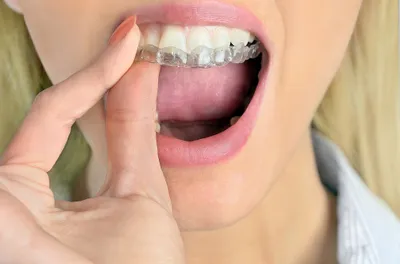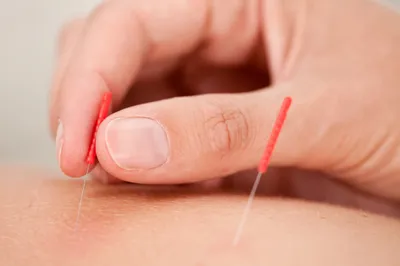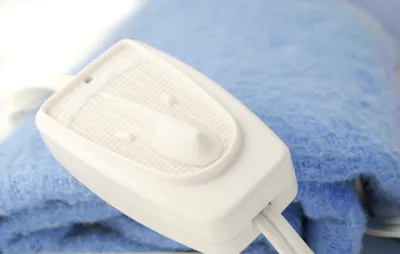TMJ (Temporomandibular Joint Disorders) is a fairly common condition that affects the jaw joints, and can cause pain and fatigue in the surrounding facial muscles. The good news is, according to the Mayo Clinic, there are ways you can manage the discomfort without resorting to surgery or heavy medications.
TMJ can be caused by a variety of factors such as injury to the jaw, improper jaw alignment, teeth grinding, arthritis or a combination of those factors. One thing in common is that these can all lead to nagging pain in the face and jaw that can be distracting to downright excruciating. Ease the pain of TMJ with these tips…
1. Wear a Night/Bite Guard
You may not be aware of it, but you could be grinding or clenching your teeth during sleep, which puts pressure on the bones and muscles that control the jaw. You may even be clenching your teeth during waking hours due to stress or fatigue without even realizing you’re doing it, adding to the problem.
The Mayo Clinic lists a bite guard as one of the ways to manage your TMJ. A night/bite guard is a relatively inexpensive oral device that fits comfortably over your teeth. While the clinic notes that it’s not fully understood why these devices are effective for TMJ, the New York Times points out that bite guards have been used since the 1930’s to prevent teeth grinding and clenching.
2. Put a Pin in it
Acupuncture uses thin needles in key points to provide muscle stimulation and pain relief, and the University of Maryland Medical Centre suggests trying it for TMJ symptoms as well. The university says there is strong evidence that supports the effectiveness of acupuncture to relieve jaw pain, and it can be combined with other techniques to boost the benefits.
The university claims that acupuncture can relieve TMJ discomfort for long periods of time, although some experts note that the number of treatments to get results may vary from patient to patient depending on the intensity of the disorder. A 2008 study out of Sweden found that patients who had acupuncture treatment as long as 20-years prior still had less intense TMJ symptoms.
3. Use Mind over Matter
It may sound easier said than done, but you can use a technique called biofeedback that teaches you to naturally reduce tension in your jaw with the help of sensors, according to the University of Maryland Medical Centre. The technique uses visualization techniques to help you relax your facial muscles, and the sensors can track your progress.
The TMJ Association based in Wisconsin, states that learning meditation could help without the need for any machines. Like any skill, proper mindfulness mediation is a technique that you can improve over time with practice, but the TMJ Association noted a study of mindfulness found it more effective for pain relief than a placebo treatment.
4. Stretch your Methods of Pain Relief
Simple stretches can help strengthen the jaw muscles and allow your jaw to move more freely, according to the Mayo Clinic. A doctor, dentist or physical therapist can teach you how to properly execute stretches that will give you the best results.
Physical therapists may also teach you additional techniques such as using cold/heat packs on your face. The therapists may use other pain relief techniques such as ultrasound at their clinics, but the bottom line is most remedies are ones you can do regularly at home without any fancy equipment or training.
5. Mind your Posture
Many times we feel pain in our bodies that is associated with muscle fatigue or weakness in another area of the body, and it’s no different with TMJ. Ergonomics (i.e. your posture) play a large part of how your joints and muscles function throughout your body, and if you spend hours in an office slumped in front of a computer, you could be doing more damage than you realize.
Slouching for hours can put a greater load on other muscles, which are forced to attempt to correct your awkward position—contributing to pain and fatigue in the face and neck. An article on the U.S. National Library of Medicine website suggests changing position regularly, as well as letting your arms rest comfortably so they’re not overworked. If that fails, you can always consider a new chair.








